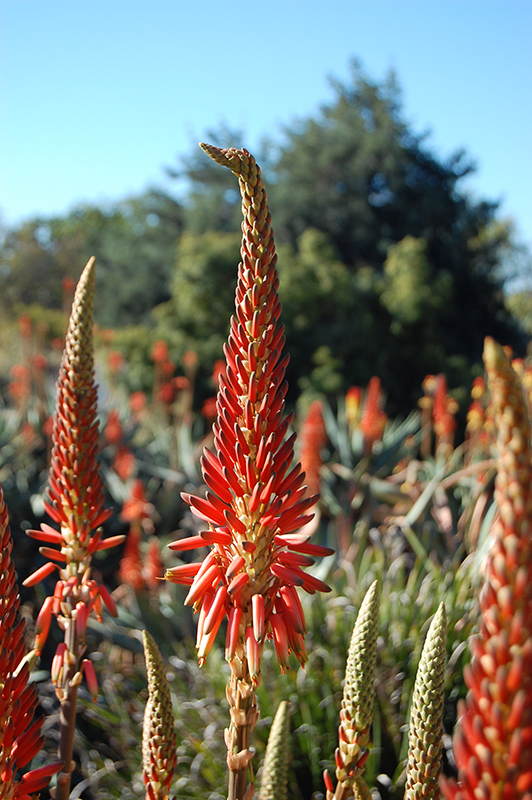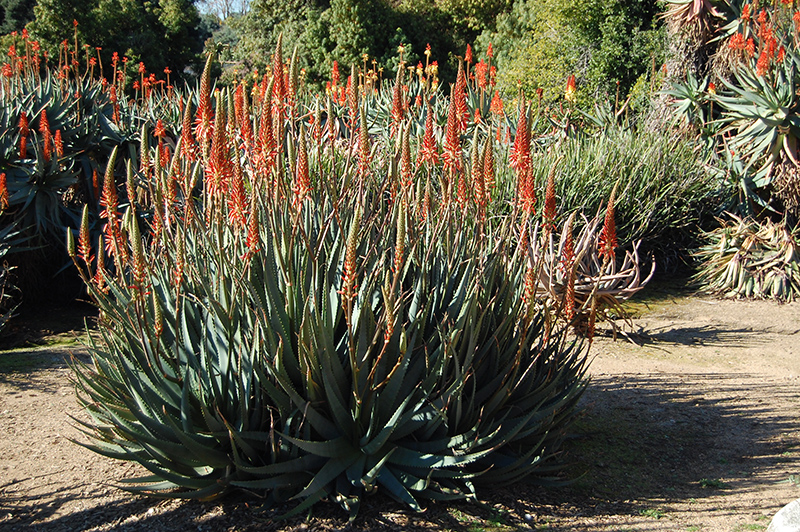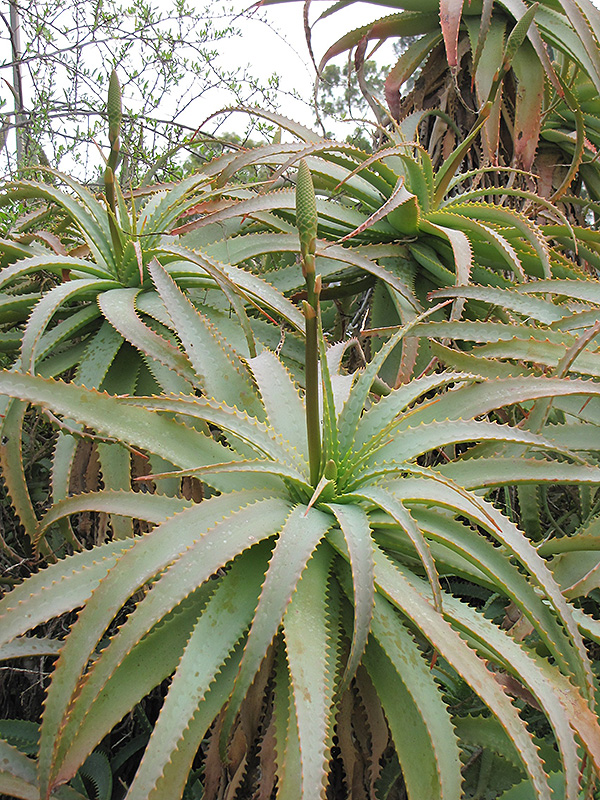Plant Height: 10 feet
Flower Height: 15 feet
Spread: 9 feet
Sunlight:
![]()
Hardiness Zone: 8b
Other Names: Krantz Aloe
Description:
A multiple branched variety with a shrubby habit; beautiful rosettes of succulent, toothed, sword shaped leaves; produces erect spikes of tubular orange-coral flowers from fall to winter; an amazing accent or screening plant
Ornamental Features
Torch Aloe features showy spikes of orange tubular flowers with coral-pink overtones rising above the foliage from late fall to late winter. Its attractive succulent sword-like leaves remain bluish-green in color throughout the year.
Landscape Attributes
Torch Aloe is an herbaceous evergreen perennial with an upright spreading habit of growth. Its wonderfully bold, coarse texture can be very effective in a balanced garden composition.
This is a relatively low maintenance plant, and usually looks its best without pruning, although it will tolerate pruning. Deer don't particularly care for this plant and will usually leave it alone in favor of tastier treats. Gardeners should be aware of the following characteristic(s) that may warrant special consideration;
- Spiny
Torch Aloe is recommended for the following landscape applications;
- Mass Planting
- General Garden Use
- Container Planting
Planting & Growing
Torch Aloe will grow to be about 10 feet tall at maturity extending to 15 feet tall with the flowers, with a spread of 9 feet. It grows at a slow rate, and under ideal conditions can be expected to live for 40 years or more. As an evegreen perennial, this plant will typically keep its form and foliage year-round.
This plant should only be grown in full sunlight. It prefers dry to average moisture levels with very well-drained soil, and will often die in standing water. It is considered to be drought-tolerant, and thus makes an ideal choice for a low-water garden or xeriscape application. It is not particular as to soil pH, but grows best in sandy soils. It is somewhat tolerant of urban pollution. This species is not originally from North America. It can be propagated by division.
Torch Aloe is a fine choice for the garden, but it is also a good selection for planting in outdoor pots and containers. Its large size and upright habit of growth lend it for use as a solitary accent, or in a composition surrounded by smaller plants around the base and those that spill over the edges. It is even sizeable enough that it can be grown alone in a suitable container. Note that when growing plants in outdoor containers and baskets, they may require more frequent waterings than they would in the yard or garden.


